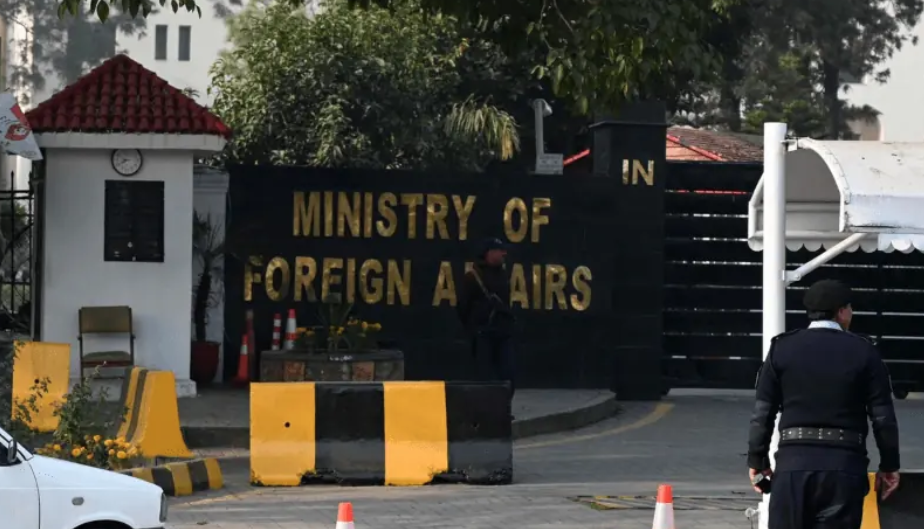POLITICS & POLICY MAKING

Pakistan’s Foreign Office on Thursday strongly condemned Israel’s move to “extend its so-called sovereignty” over parts of the occupied West Bank after the Israeli Knesset gave preliminary approval to a bill applying Israeli law to the occupied territory.
In a statement, the Foreign Office (FO) described the annexation attempt as a “flagrant violation of international law” and a direct breach of United Nations Security Council resolutions and the inalienable rights of the Palestinian people.
“Pakistan strongly condemns Israel’s attempt to extend its so-called ‘sovereignty’ over parts of the occupied West Bank, including illegal Israeli settlements, through a draft law introduced in the legislature of the occupying power,” the statement read.
The FO said such “provocative and unlawful” actions undermine ongoing efforts to achieve peace and stability in the region. It urged the international community to take “urgent and decisive action” to halt these illegal measures and hold Israel accountable for continued violations of international law.
Reaffirming Islamabad’s firm position, the statement added:
“Pakistan reiterates its commitment to working with regional and international partners to uphold the rights of the Palestinian people, including their right to self-determination, and to ensure peace, justice, and dignity for the Palestinians.”
The FO also reiterated Pakistan’s unwavering support for the establishment of an independent, sovereign, and viable State of Palestine based on pre-1967 borders, with Al Quds Al Sharif as its capital.
Background of Israel’s Annexation Vote
On Wednesday, the Israeli Knesset voted to advance two bills proposing the annexation of occupied West Bank territories. The move came barely a week after U.S. President Donald Trump’s administration pushed through a peace deal aimed at ending Israel’s two-year military offensive in Gaza.
The first bill passed narrowly by 25-24 votes in the 120-member parliament, while another, focused on annexing the Maale Adumim settlement, passed by 31-9 votes. Notably, Prime Minister Benjamin Netanyahu’s Likud party did not support the legislation, which was introduced by lawmakers outside his ruling coalition.
Members of Netanyahu’s coalition have long advocated for Israel to formally annex parts of the West Bank, citing biblical and historical claims. However, the United Nations and most of the international community regard the territories captured in the 1967 Six-Day War as occupied lands.
In 2024, the UN’s International Court of Justice (ICJ) declared Israel’s occupation and settlements in Palestinian territories illegal and demanded their immediate withdrawal.
Currently, the Palestinian Authority exercises limited self-rule in certain parts of the occupied West Bank.
U.S. Reaction: Annexation Threatens Peace Deal
Meanwhile, U.S. Secretary of State Marco Rubio on Wednesday warned that Israel’s annexation efforts risk undermining the recent Gaza peace deal.
“I think the president’s made clear that’s not something we can be supportive of right now,” Rubio said, describing annexation efforts as “threatening for the peace deal.”
Rubio also expressed concern over escalating violence by Israeli settlers in the occupied West Bank, saying such incidents could “destabilize” progress toward peace.
Despite tensions, Rubio voiced cautious optimism:
“Every day there’ll be threats to it, but I actually think we’re ahead of schedule in bringing it together, and the fact that we made it through this weekend is a good sign.”




